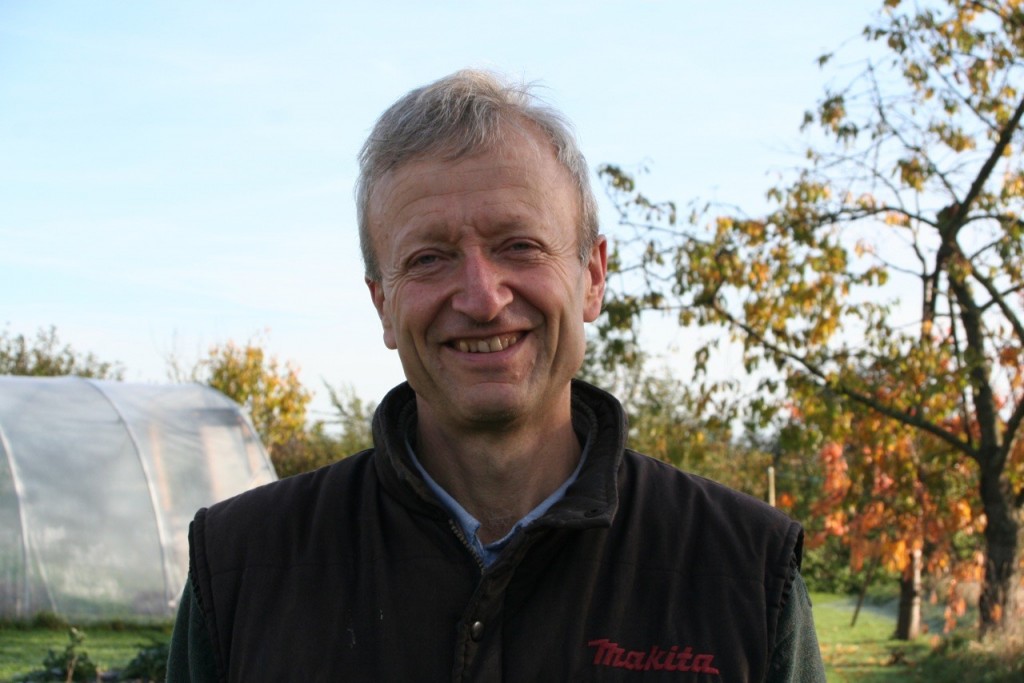
Charles Dowding has had his name associated with no-dig gardening for years now, and it is unlikely that you will find people who practice no-dig gardening who do not know of him. Charles found his feet in no-dig gardening some 30 years ago and hasn’t looked back since. No-dig gardening works best with a layer of compost as mulch, which encourages worms and other soil life to 'do the digging', avoiding any need to turn/loosen soil or make trenches. Here Charles tells us a bit more about the practice and gives some insightful tips and thoughts into different areas of gardening as well.
What is your all-time top gardening tip for the beginner gardener?
Be prepared to put time, effort and some money into establishing a garden. The first year is key, cleaning soil of weeds especially. Start small, don’t take on more than you can manage thoroughly, and then expand your plantings as you get the hang of what is involved. Gardens are unforgiving if you neglect them so you need to work out what you can fit into your available time throughout the year. See my book How to Create a New Vegetable Garden (Green Books Feb 2015), and my Vegetable Course book details this aspect too.
Where is the most beautiful garden you visited?
So many! I loved the beautiful cacti at Huntington Botanical Gardens near Los Angeles and in complete contrast, the green allure of demure English planting at RHS Rosemoor in Devon. The most beautiful garden I know is West Dean College near Chichester where the head gardeners, Sarah Wain and Jim Buckland, arrived to dereliction 23 years ago, gave themselves 12 years to make it good, and yet it took until this year when Jim said it was the first spring he felt everything was in order! Their kitchen garden is absolutely stunning though it is Victorian and not allowed to be no dig!
According to your bio, you've been 'no-dig' for over 30 years. What first inspired you to go no-dig? What are the benefits of no-dig gardens?
It feels right to leave soil alone, it’s an organism and full of life. The question is how to go about it and I read around in 1982 before coming across Ruth Stout’s “No Work Garden” which helped. But she mulched with hay and I found that brought an army of slugs! F.C. King who was head gardener at Levens Hall in the 1930s and ‘40s had great success with compost mulches and not digging. Why only him and a few others? I don’t know, anyway I simply mulch every year with compost and a major advantage to this method, as well as saving the work of digging, is that fewer weeds grow, once you have done a thorough mulch of any perennial weeds. I run experiments to compare the growth of the same vegetables on dug and undug beds, the results are intriguingly similar!
How easy would it be for the average gardener to make the transition from a dug garden to a no-dig garden?
Perennial weeds are often the issue. If there is couch grass, ground elder, buttercups etc. I cover with either black polythene for at least six months, or six inches of compost followed by regular use of a trowel to extract regrowth of perennial weeds until their roots are exhausted. I have cleared large areas of vigorous perennial weeds this way, they are gone forever, the secret is thoroughness in that first year. You are repaid thereafter with clean soil and massive time savings. Apart from perennial weeds, it’s easy, just stop digging or tilling, pull or hoe existing annual weeds and spread compost. If you have a lot of annual weeds I would lay cardboard first, with an inch or two of compost on top. Within two to three months the cardboard is decomposing, the weeds are dead and you can sow or plant any seed or plant into the surface compost.
How important is making sure your compost is suitable for your needs?
Yes it matters but many will serve, they just behave differently. Municipal (green waste) compost and spent mushroom compost are easy to use, weed-free and give good results. One or two-year-old animal manure has plenty of nutrients but can be lumpy, needs working through with a manure fork. Homemade compost is often underrated, it may look imperfect, but trials in pots convince me that its nutrient status is good!
Do you believe companion planting is a beneficial practice for growing vegetables?
Yes for sure, but it is not certain or predictable. French marigolds under tomatoes deter whiteflies but in a bad year there may be moments of infestation, often until ladybirds arrive in early summer and sort things out. Insects are mobile so I favour an approach of planting flowers I like wherever they look best. This pleases the eye, is simpler than trying to match each plant with a companion, and encourages a good balance of insects and birds around all plants.
Author Bio
Charles Dowding has been growing organic vegetables for over 30 years now using his preferred no-dig method. He has become a celebrity in this area of gardening, with very few people practicing the method with no reference to his work. Charles has written articles for many different gardening publications throughout the years and has also written several books on no-dig organic gardening. More information and gardening advice from Charles can be found here.
Be sure to take a look at some of our other gardening guides




